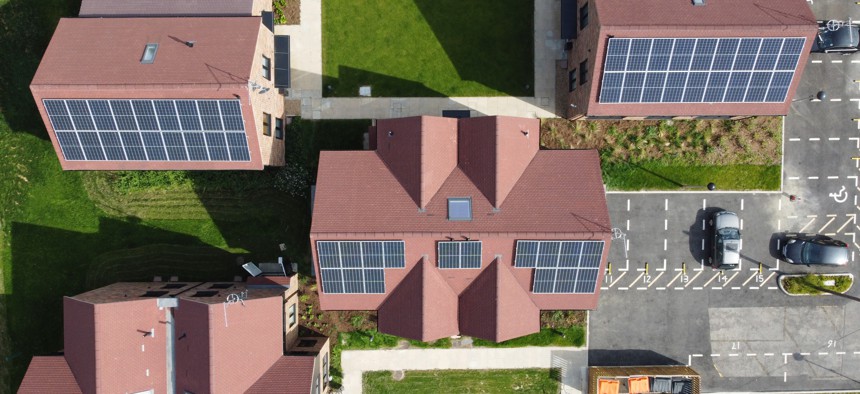Energy Pilot New Program To Promote Equitable Access To Solar Power

Richard Newstead/Getty Images
The agency is piloting a new initiative to bring solar energy to low income households.
The Department of Energy announced several new initiatives to foster the growth of the solar industry nationwide, focusing on job creation and lower electricity bills.
In collaboration with the Department of Health and Human Services, Energy’s Community Solar Subscription Platform will supervise pilot programs in five states and Washington, D.C to gauge scalability and efficiency. In addition to supporting Energy’s broader goal of reaching a carbon-zero electricity grid by 2035.
The platform specifically works within the Low-Income Home Energy Assistance Program to promote equitable access to solar energy.
“Every American community, especially those that face disproportionately higher energy burdens, deserves the economic and health benefits that come with increased access to affordable clean energy,” said U.S. Secretary of Energy Jennifer Granholm in a press release. “This is why DOE is working across the federal government to open up community solar that will rapidly lower electricity bills for households that need it most and create good paying jobs in every pocket of America.”
States included in the initiative are Colorado, Illinois, New Jersey, New Mexico and New York.
Part of the program is ensuring low-income households are included in solar energy development. Officials designed the program so that lower income participants will have significant energy savings. If the pilot succeeds, participating households in Washington D.C. and Colorado can expect 50% savings on electricity bills, and Illinois, New Jersey, New York and New Mexico participants can expect 20%.
These figures could total millions of dollars in energy savings per state.
“Community solar programs are essential to the expansion of renewable energy across the state of Illinois and the entire nation,” Illinois Governor J.B. Pritzker said. “By supporting low-income communities who want to participate in this program, we can increase energy efficiency in the long term and provide impactful access to cost-saving solar energy for the households in our state that need it most.”
In addition to the pilot program, Energy also released a new Request for Information on the structure of the program.






